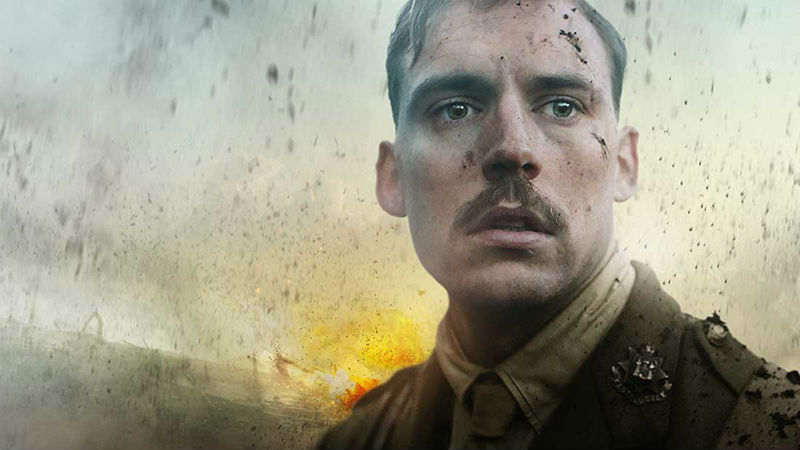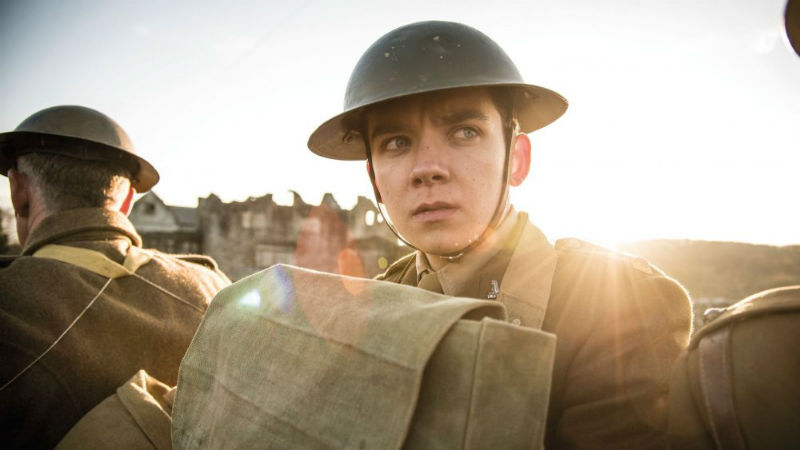




Conjuring up a list of the ‘greatest’ war films is easily done; Saving Private Ryan (Steven Spielberg, 1998), Paths of Glory (Stanley Kubrick, 1957), Full Metal Jacket (Kubrick, 1957), Paths of Glory, etc. Their overt themes of masculinity, and in some cases severe depictions of patriotism, can feel tired in a world that has seen the futility of war present, yet again, in the Iraq conflicts, starting in 2003. The notion of futility has always been one in human history, still, in the events and dramatic modernisation of conflict during World War I, the supposed ‘war to end all wars’ brought the human race crashing into the 20th century in a monstrous fashion. Set during the final few months of the German armies’ ‘Spring Offensive’ in 1918, Saul Dibb’s cinematic adaptation of R. C. Sheriff’s 1928 play Journey’s End features powerful performances and a uniquely stifling portrayal of life on the Western front.

Wasting no time to present an idyllic England to defend, as many a cliché war film does, Captain Stanhope’s (Sam Claflin) regiment are instantly filmed preparing to march to the front lines. Informing the audience of the strict six-day rotation British soldiers face in title cards, it is made clear from Dibb et al that Stanhope and co will inevitably not return back from their time at the trenches. Framed by DoP Laurie Rose – who has worked eloquently with Ben Wheatley – Clafin’s Stanhope is consumed by the darkness of the barn, where his troops prepare for battle and drink.
Second in command, Paul Bettany’s Osborne, appears the saner of the two as he tips a female farmer for offering their shelter and proceeds to inform Stanhope of the imminent departure. Intercutting their movement towards the death, baby-faced Raleigh (Asa Butterfield) arrives fresh from prep school to the British HQ. Part of the upper echelons of society, his uncle is General. Requesting to join Stanhope, whom he knows from school, seems like a joyous proposition to him, with his uncle hesitantly accepting.
The psychological and physical strains caused by the trenches are expressed in curious ways by all of Stanhope’s closest men; Trotter (Stephen Graham) sticks to a strict routine of eating, Mason (Toby Jones) chooses to be funny and Osborne recalls walking in the meadows with his wife. Arranging an ensemble of the highest prestige could imbue the piece with too much of a theatrical edge, but the cinematic awareness of the filmmakers shines through. However, in the trench quarters the tight space and low key lighting, particularly relevant in verbally explosive scenes including Tom Sturridge’s Hibbert and Stanhope, do feel somewhat overplayed for dramatic purposes.

Adopting natural lighting and shooting on location creates a milieu of verisimilitude. Accompanied by stunning vistas of the desolate landscape, with lingering gas a top the encompassing fields, Rose and Dibb’s collaboration creates a deafening silence in the aesthetics. Behind the visuals, the music of Hildur Gudnadóttir’s ambient cello permeates these moments of silence to construct disorientating sounds. Though she did not openly score the film, Dibb felt her music fit the piece so well, he asked the production company to purchase the rights. Sight and sound produce an intoxicating blend that is only further extended in the tightness of the frame and cinematography.
Speaking after a screening, the director alluded towards two influences: Alien (Ridley Scott, 1979) and Das Boot (Wolfgang Petersen, 1981). Both films are incredibly claustrophobic in their execution and there is a distinct lack of long shots, overhead shots or even wide frames. Instead, what the filmmakers achieve is a deep submergence into this cadaverous place.
Slowly building to a mournful end, it is hard to not be moved at the futile nature of war, specifically to a younger generation, elicited throughout. Akin to the greatness of Oh, What A Lovely War (Richard Attenborough, 1963), the theatrical roots are expelled in favour of a cinematically aware film. Marking 100 years since the end of the War, one would be amiss to ignore its presence upon release.
Journey’s End was out in cinemas across the UK in February. It’s out on all major VoD platforms in June.





















